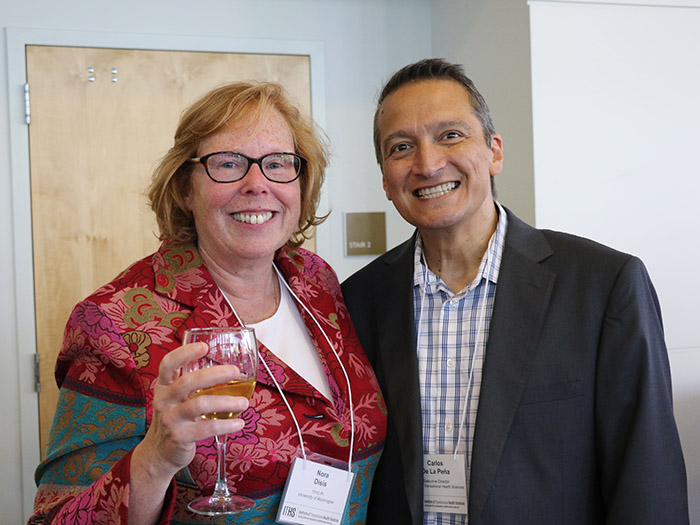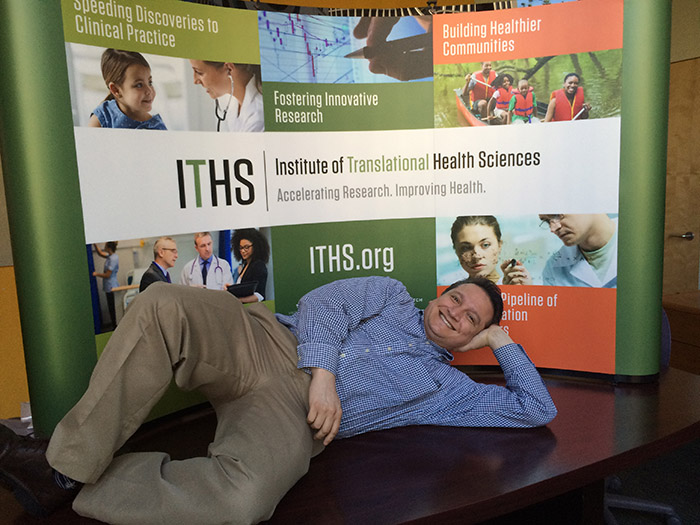Staff Sessions
8:00-8:30am
Registration & Breakfast
8:30-9:20am
Keynote: Working Toward a Cure in Hemophilia
Description to come
Speaker
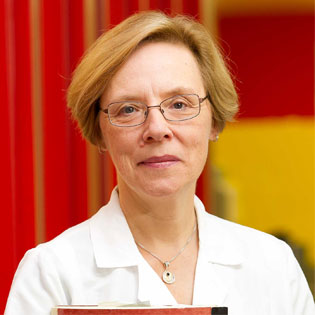
Barbara Konkle, MD
Speaker Profile
 Barbara Konkle, MD
Barbara Konkle, MD
Medical Director, Special Hemotosis Laboratory
Associate Director, Hemophilia Treatment Center, Bloodworks Northwest
Interim Chief Scientific Officer, Bloodworks Northwest
Professor of Hematology and Medicine, University of Washington
A nationally and internationally recognized expert in laboratory evaluation, diagnosis, and treatment of bleeding and clotting disorders, Dr. Konkle continues to pursue research on hemostasis clinical test development and the use of such testing to support innovative clinical research. Dr. Konkle is especially interested in translational research—the bridge between scientific discovery and improved patient care. Her ultimate goal is to help bring new therapies to patients.
Learn More
9:30-10:30am
The Human Research Protection Program: Cultivating a Partnership with your IRB
Institutional Review Boards (IRBs) have a federal mandate to facilitate research that protects the rights, safety, and well-being of research participants. By establishing a collaborative relationship with your IRB office, you can minimize misunderstandings, efficiently move your studies through the work flow, and together promote safe, ethical, high quality research.
Speaker
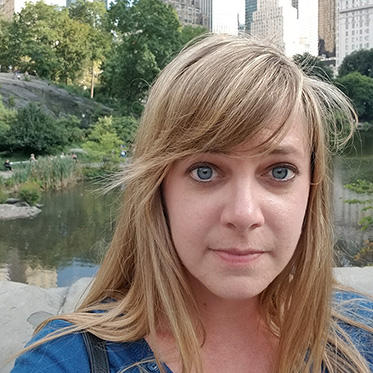
Adrienne Meyer, MPA, CIP
Speaker Profile

Adrienne Meyer, MPA, CIP
Assistant Director for Research Support, Human Subjects Division
University of Washington
Adrienne Meyer, MPA, CIP, is the Assistant Director for Researcher Support in the Human Subjects Division at the University of Washington. Adrienne is a regulatory specialist and frequent lecturer on issues associated with regulatory compliance and research ethics in a broad spectrum of research disciplines.
Adrienne has been at the UW for nearly 20 years and has worked in many capacities with researchers from nearly every department and research discipline: from behavioral research with young children to first-in-human chemotherapy trials. She was recently a member of the Research on Medical Practices (ROMP) Ethics study team, which applied qualitative and quantitative methods to understand patient preferences for research consent.
Learn More
10:40-11:40am
The Clinical Research Billing Cycle: Staff Role in Research Budget
The clinical research billing cycle is a complex process that involves multiple offices billing both clinical and study tests to the patient and the study budget. This session will provide an overview of a typical clinical research billing cycle, and highlight hand-offs between billing offices and members of the research team to prevent errors.
Speakers

Will Dean
Speaker Profile
Will Dean
Revenue Cycle Manager
Clinical Trials Office, University of Washington

Eli Reis
Speaker Profile
Eli Reis
Training and Communication Specialist, Clinical Trials Office
University of Washington

Laurel Weigler
Speaker Profile
Laurel Weigler
Manager of Program Operations
Clinical Trials Office, University of Washington
11:40am-1:00pm
Lunch Break
1:00-2:00pm
Clinical Trial Management Systems: A One Stop Solution
Clinical Trials Management Systems (CTMS) integrate the multiple components of clinical research, such as billing, implementation timelines, and reporting guidelines. This session will describe the role of a CTMS and give a demonstration of the CTMS that will be rolled out at UW, SCCA, and Fred Hutch.
Speaker

Oscar Cano
Speaker Profile
Oscar Cano
Product Manager, Clinical Trials Management System Program Office
Fred Hutchinson Cancer Research Center
Oscar Cano is the Product Manager for the CTMS Program Office, a tri-institutional group responsible for the implementation and ongoing operation of the Clinical Trial Management System (CTMS). Oscar has over ten years of experience in software implementation, training and support. He currently manages the OnCore CTMS shared across the University of Washington, Fred Hutch and Seattle Cancer Care Alliance.
2:00-2:15pm
Break
2:15-3:15pm
Accelerating Study Initiation: Institutional Resources to Catalyze Study Design
Learn sound methods to determine how best to approach implementing a new study, and apply elements of project management to organize the financial, timeline, institutional oversight, and research support resources to move your study through the start-up process.
Speaker
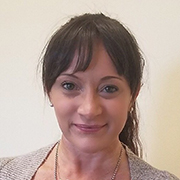
Ashley Waldie, MA, CCRP
Speaker Profile

Ashley Waldie, MA, CCRP
Operations Manager
Fred Hutchinson Cancer Research Center
Ashley Waldie, MA, CCRP, is the Start-up Operations Manager in Clinical Research Support (CRS). At CRS, Ashley manages a central team that provides comprehensive study start-up support on behalf of Cancer Consortium investigators to open clinical trials in 100 days.
Ashley is a seasoned oncology start-up project manager who has built systems to manage complex timelines for CRS and created tools to support study staff across the Consortium. She has developed communication and budget negotiation strategies that are effective and well-received by sponsors and CROs.
3:25-4:25pm
An Ethical Framework for Clinical Research: Rethinking and Going Beyond Informed Consent
In this session you will learn about eight ethical benchmarks for clinical research and apply them to cases to understand the trade-offs involved in ethical analysis.
Speaker

Ben Wilfond, MD
Speaker Profile

Benjamin S. Wilfond, MD
Director, Treuman Katz Center for Pediatric Bioethics
Seattle Children’s
Benjamin S. Wilfond, MD, is the director of the Treuman Katz Center for Pediatric Bioethics at Seattle Children’s Research Institute and professor and chief of the Division of Bioethics in the Department of Pediatrics at the University of Washington School of Medicine. He is also adjunct professor in the UW Department of Bioethics and Humanities.
Dr. Wilfond is the chief of the Bioethics Consultation Service and an attending physician in the Division of Pulmonary Medicine at Seattle Children’s Hospital. He also coordinates Research Bioethics Consult Service for the Institute of Translational Health Sciences.
He attended New Jersey Medical School and completed his pediatric residency and his fellowship in pediatric pulmonology and medical ethics at the University of Wisconsin. Prior to moving to Seattle in 2006, he has held faculty appointments at the University of Arizona, National Institutes of Health, and Johns Hopkins University. He is the former chair of the intramural NHGRI IRB and has 25 years of experience on IRBs and DMCs.
He is currently working on ethical and policy issues related to the implementation of genetic testing for reproductive purposes, the role of disabilities in clinical decision‐making, the impact of research ethics consultation in clinical research, and the understanding of public attitudes about research on medical practices. He is the PAST president of the Association of Bioethics Program Directors and the chair for Pediatrics Working Group for the NHGRI Clinical Sequencing Exploratory Research Consortium.
Learn More
8:00-8:30am
Continental Breakfast
8:30-9:30am
The Protocol Review: How to Read for both the Big Picture and Your Responsibilities in Implementing a Study
It is essential for research staff to understand fundamental concepts and terminology common to clinical trial protocols. This session will go over sample protocols and describe strategies for reading protocols to maximize study success.
Speaker

Amy Good, PhD
Speaker Profile

Amy Good, PhD
Manager, Research Coordination Center, ITHS
University of Washington
Amy Good, PhD is the Implementation Manager for the Research Coordination Center at the University of Washington, Institute of Translational Health Sciences. Amy leads a team of research coordinators who support the conduct of clinical and translational research at University of Washington and other institutions in the Seattle area. The team provides creative staffing solutions to meet the needs of investigator-initiated and industry-sponsored clinical research projects.
Amy received her PhD in Clinical Psychology with a specialization in rehabilitation and behavioral medicine. She has been involved in health-related research for 20 years.
9:40-10:40am
Increase Study Success Through Integration of Team Science Competencies
Innovation success depends not on the combining of the best people but on creating the most psychologically safe environment. A creative team environment can be intentionally created and anyone can contribute to that creation. Collaborative problem solvers are made—not born. Nearly two-thirds of recent graduates believe they can effectively work on teams, but only one third of manages agreed. In fact, the less competent you are, the less accurate your self-assessment of your own competence. This session will provide insights and resources focused on starting your team off on the right path. You will walk away with both tools and resources to increase your team’s effectiveness and efficiency.
Speakers
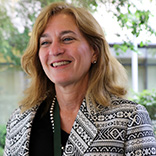
Jennifer Sprecher
Speaker Profile

Jennifer Sprecher
Director, Lean Performance
Institute of Translational Health Sciences
Jennifer Sprecher is the Director of Lean Performance for ITHS. She works with organizational internal and external team members to develop strategic plans, and implement process improvement and aligned and prioritized initiatives.
With a background in Industrial Engineering, Ms. Sprecher has been working with process improvement for over 25 years using methods including Lean, Lean‐Sigma, Plan Do Check Act and 6S (workplace organization). She works with organizations to implement concepts of project management, measurement systems, change management, benchmarking, and team problem solving to improve organizational performance.
Ms. Sprecher’s measurement and strategic planning uses concepts from Balanced scorecard, Hoshin planning, and cascaded dashboards. Ms. Sprecher is a certified Six Sigma Black Belt.
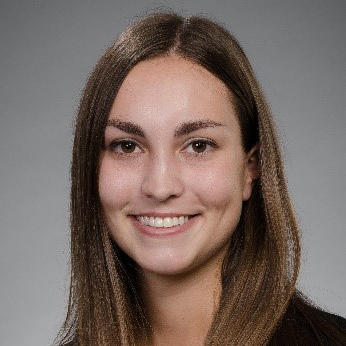
Nicole Summerside, MHA
Speaker Profile
Nicole Summerside, MHA
Manager of Program Operations
Center for Health Sciences Interprofessional Education Research and Practice, University of Washington
Nicole Summerside, MHA is a Manager of Program Operations for the UW Center for Health Sciences Interprofessional Education, Research and Practice (CHSIE). She delivers program management and support, working to facilitate interprofessional collaborative practice (IPCP) environments and team-based care to improve team functioning and relationships, and patient and system outcomes. Nicole’s background is in Health and Business Administration.
10:50-11:50am
Leveraging the EMR: Tools & Rules for EMR Research Data Acquisition
Electronic medical records (EMR) are a common source of clinical research data. In this session, you will learn about the tools and resources available to optimize the EMR to identify potential research participants and run custom reports to quickly create a data set, as well as how to comply with EMR privacy rules when using protected health information.
Speaker
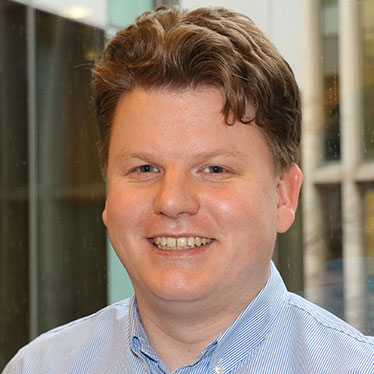
Bas de Veer
Speaker Profile

Bas de Veer, MS
Manager of Research IT Services
University of Washington
Bas de Veer MS is a medical informatician who specializes in bridging the gap between the worlds of medicine and informatics. He possesses more than a decade of experience in the areas of software implementation, training, user experience, and research consulting.
Bas currently runs the Research IT services group at the University of Washington. This group governs the REDCap installation of more than 9.500 users for the Institute of Translational Health Sciences, which is the NIH-funded Clinical and Translational Science Award at the University of Washington. The services group also provides other data services (like cohort extractions, research reports and custom integration with REDCap) in the clinical research domain.
Bas earned both a Bachelor’s and a Master’s degree in Medical Informatics at the University of Amsterdam.
11:50am-12:45pm
Lunch Break
12:45-1:45pm
ClinicalTrials.gov: Increasing the Transparency of Clinical Research
This session will introduce attendees to ClinicalTrials.gov and its importance in the clinical research process. We’ll discuss the contents of ClinicalTrials.gov; legal, NIH, and publisher requirements for submitting data; and how this resource benefits researchers and the public. In illustrating the benefits of ClinicalTrials.gov, we’ll focus on its role in increasing the transparency of clinical research and how that contributes to sound scientific practices, public accountability, and opportunities for patients.
Speaker
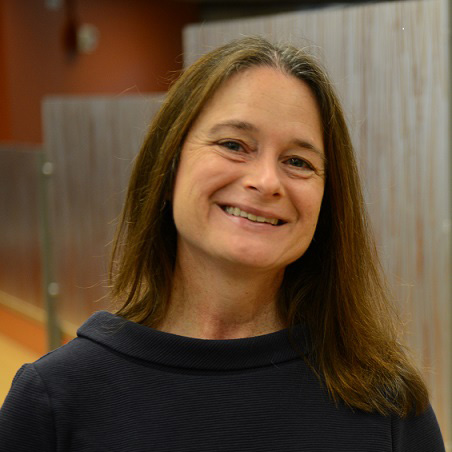
Diana Nelson Louden, MLIBR
Speaker Profile
 Diana Nelson Louden, MLIBR
Diana Nelson Louden, MLIBR
Biomedical and Translational Sciences Librarian
University of Washington Health Sciences Library
Diana Nelson Louden is the Biomedical and Translational Sciences Librarian at the University of Washington Health Sciences Library. In this capacity she supports ITHS, ITHS educational programs, and ITHS members by providing research assistance and instruction on library resources.
Diana joined the Health Sciences Library in 2012 after spending 17 years as a biomedical research and patent librarian at a biotechnology company in Seattle. She holds a bachelor’s degree in biology and a master’s degree in library science.
1:45-2:00pm
Break
2:00-3:00pm
Networking Activity TBD
Description to come.
Carlos De La Peña, MD, MBA, MHA
Executive Director, January, 2015 – September, 2018
Carlos De La Peña was the executive director of the Institute of Translational Health Sciences (ITHS). In this role, Dr. De La Peña directed all financial, operational and programmatic functions of ITHS, an institute primarily funded by the Nation Institutes of Health’s Clinical and Translational Science Awards (CTSA) Program.
Before Dr. De La Peña came to ITHS, he spent four years as Administrator of the Clinical & Translational Science Institute of Southeast Wisconsin from 2010-2014. Prior to that he was the Associate Director of the Clinical and Translational Research Center, the CTSA at the University of Texas Southwestern Medical Center in Dallas. Dr. De La Peña has also worked as a Clinical Manager for Southwest Medical Center in St. Louis, Director of Operations for La Clinica St. Louis-Community Health Care Centers in St. Louis, and as Supervisor of Campus Operations for the University of Arkansas for Medical Sciences in Little Rock.
Dr. De La Peña earned his medical degree at the Universidad Autónoma de Madrid Medical School. He holds an MBA from University of Texas at Arlington, and a Master of Healthcare Administration from George Washington University as well as an International Master of Business Administration.

Paul J. Martin, MD

Paul J. Martin, MD, a co-Principal Investigator Emeritus of the Institute, served as the Medical Director of Clinical Research Support, the Fred Hutch Clinical Trials Office, from 2011 to 2017. He is a Professor Emeritus in the Clinical Research Division at Fred Hutch and a Professor Emeritus in the Department of Medicine at the UW. Dr. Martin has more than 40 years of experience with hematopoietic cell transplantation at Fred Hutch, focusing on acute and chronic graft-versus-host disease (GVHD). He has contributed to the field through several large retrospective studies of GVHD as well as prospective clinical trials for treatment or prevention of chronic GVHD. Dr. Martin serves as Director of the Pilot Program for the ITHS.




